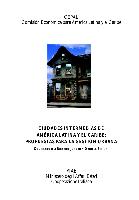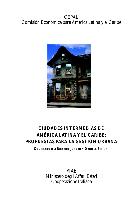Location
Politics of Italy is conducted through a Parliamentary Republic with a multi-party system. Italy has been a democratic republic since 2 June 1946, when the monarchy was abolished by popular referendum and a constituent assembly was elected to draft a constitution, which was promulgated on 1 January 1948.
The executive power is exercised collectively by the Council of Ministers, which is led by the Prime Minister, officially referred to as President of the Council ("Presidente del Consiglio"). Legislative power is vested in the two houses of parliament primarily, and secondarily on the Council of Ministers, which can introduce bills and holds the majority in the parliament. The judiciary is independent of the executive and the legislative branches. It is headed by the High Council of the Judiciary. The president is the head of state, though his position is separate from all branches.
Source: Wikipedia
Members:
Resources
Displaying 1 - 5 of 23Estudios de casos
Proyecto Gestión Urbana en Ciudades Intermedias Seleccionadas de América Latina ITA/95/S71
Direcciones para el futuro
Proyecto Gestión Urbana en Ciudades Intermedias Seleccionadas de América Latina ITA/95/S71
Ciudades intermedias de América Latina y el Caribe: propuestas para la gestión urbana
Prefacio En 1990, Italia se convirtió en uno de los estados miembros de la Comisión Económica para América Latina y el Caribe y coincidentemente con ese evento, se preparó la primera versión del Proyecto 'Gestión Urbana en Ciudades Intermedias de América Latina y el Caribe' (GUCI).Desde 1985, la CEPAL había incorporado el tema de la gestión urbana en su trabajo, a través de las actividades de la Unidad Conjunta CEPAL/HÁBITAT de Asentamientos Humanos, en coordinación con programas similares, como el Programa de Gestión Urbana del PNUD, junto al Banco Mundial y al UNCHS/HÁBITAT.
Proyecto Gestión Urbana en Ciudades Intermedias Seleccionadas de América Latina (GUCI)
Proyecto Gestión Urbana en Ciudades Intermedias Seleccionadas de América Latina ITA/95/S71
La planificación y gestión urbana local
Proyecto Gestión Urbana en Ciudades Intermedias Seleccionadas de América Latina ITA/95/S71






